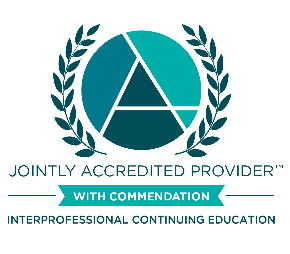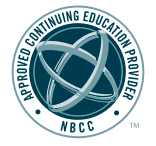A Resource for Healthcare and Social Services Professionals
September 13, 2023
3:00 pm–4:00 pm ET
This training will provide knowledge regarding xylazine, a CNS depressant, which has been linked to an increasing number of overdose deaths in the US.
Via Zoom
This training will provide knowledge regarding xylazine, a CNS depressant, which has been linked to an increasing number of overdose deaths in the US. This training will discuss the physiologic effects of xylazine, manifestations of xylazine intoxication, overdose, communicable infections associated with xylazine use, and wound care for persons injecting xylazine.
NOTE: This training is 60 minutes long. There will be an optional 30-minute Q&A session following the training, which will not count for credit.
Please read the Accreditation Information section of this page to learn about the requirements for receiving credit or a certificate of completion.
Providers, nurses, counselors, and other non-clinical staff are welcome to attend.
Dr. Jawa is an Assistant Professor and Clinician Investigator in the Department of General Internal Medicine at University of Pittsburgh Medical Center and a clinician investigator in the Center for Research on Health Care. She is board certified in Internal Medicine and Infectious Disease and Addiction Medicine. Dr. Jawa’s research focuses on the intersection of Infectious Disease and Addiction, including studying how to optimize integration of harm reduction services for individuals with substance use disorders within traditional health settings, developing multidisciplinary provider facing interventions so as to prevent, diagnose, and treat infectious and non-infections complications of drug use. Clinically, she provides office-based addiction treatment in IM Recovery Engagement Program and attends on the Endovascular Infection Service at UPMC.
Stephen Murray, MPH, NRP (he/him)Stephen is an overdose researcher at Boston Medical Center, focusing on the role of public safety/public health partnerships in post-overdose response teams. He recently retired as a Lieutenant at a regional ambulance service in Western Massachusetts, and had served as a first responder since 2013, working both as a firefighter and paramedic. He shares his lived experience as a person who used drugs and as an overdose survivor. Stephen provides expert technical assistance around the topics of overdose prevention, emergency medical services, and harm reduction to a variety of organizations, including the Berkshire Regional Planning Commission, Substance Abuse and Mental Health Services Administration (SAMHSA), the City of Northampton, RIZE Foundation, Massachusetts Drug Supply Data Stream, and the Massachusetts Department of Public Health. He has guest lectured at Northeastern University, UMASS Medical School, Bennington College, Boston University, and Ohio State University, and has had work published in the American Journal of Public Health and Health Promotion Practice.
Following this training, participants will have the knowledge necessary to:
Boston Medical Center Grayken Center for Addiction TTA, Massachusetts Department of Public Health, Bureau of Substance Addiction Services (DPH/BSAS)
Funding for out of state attendees is provided by the Opioid Response Network (ORN).
Funding for this initiative was made possible (in part) by grant no. 1H79TI083343 from SAMHSA. The views expressed in written conference materials or publications and by speakers and moderators do not necessarily reflect the official policies of the Department of Health and Human Services; nor does mention of trade names, commercial practices, or organizations imply endorsement by the U.S. Government.
REQUIREMENTS for credit
Please note this policy is strictly enforced for accreditation purposes. Participants will forfeit collection of credit and certificates of completion if more than 10 minutes of the training is missed.
CME
 In support of improving patient care, Boston University Chobanian & Avedisian School of Medicine is jointly accredited by the Accreditation Council for Continuing Medical Education (ACCME), the Accreditation Council for Pharmacy Education (ACPE), and the American Nurses Credentialing Center (ANCC), to provide continuing education for the healthcare team.
In support of improving patient care, Boston University Chobanian & Avedisian School of Medicine is jointly accredited by the Accreditation Council for Continuing Medical Education (ACCME), the Accreditation Council for Pharmacy Education (ACPE), and the American Nurses Credentialing Center (ANCC), to provide continuing education for the healthcare team.
Boston University Chobanian & Avedisian School of Medicine designates this live activity for a maximum of 1.00 AMA PRA Category 1 Credit(s)™. Physicians should claim only the credit commensurate with the extent of their participation in the activity.
Nursing
Boston Medical Center is approved as a provider of nursing continuing professional development by the American Nurses Association Massachusetts, an accredited approver by the American Nurses Credentialing Center’s Commission on Accreditation. Participants who complete and return the evaluation and stay for the entire session will be awarded 1.00 contact hours.
Social Work
As a Jointly Accredited Organization, Boston University Chobanian & Avedisian School of Medicine is approved to offer social work continuing education by the Association of Social Work Boards (ASWB) Approved Continuing Education (ACE) program. Organizations, not individual courses, are approved under this program. Regulatory boards are the final authority on courses accepted for continuing education credit. Social workers completing this course receive 1.00 general continuing education credits.
LMHC
 BMC Grayken Center of Addiction TTA has been approved by NBCC as an Approved Continuing Education Provider, ACEP No. 7188. Programs that do not qualify for NBCC credit are clearly identified. BMC Grayken Center of Addiction TTA is solely responsible for all aspects of the programs. For this program, 1.00 contact hours will be offered to participants who attend the training and complete the evaluation.
BMC Grayken Center of Addiction TTA has been approved by NBCC as an Approved Continuing Education Provider, ACEP No. 7188. Programs that do not qualify for NBCC credit are clearly identified. BMC Grayken Center of Addiction TTA is solely responsible for all aspects of the programs. For this program, 1.00 contact hours will be offered to participants who attend the training and complete the evaluation.
LADC/CADC & Recovery Coach
Grayken Center for Addiction TTA is approved to offer LADC/CADCs and recovery coaches who complete this course 1.00 general continuing education credits.
Disclaimer
Continuing education (CE) requirements vary by license and jurisdiction. When requesting continuing education credits, please ensure you are following the rules and regulations determined by the board regulating your license. Boston Medical Center Grayken Center for Addiction TTA does not oversee adherence to licensing requirements and regulations.